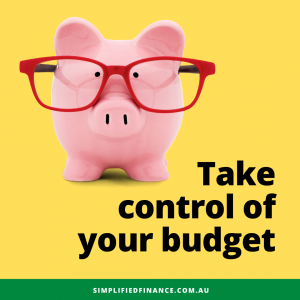 Getting your budget under control and your finances in order is absolutely essential to anyone looking to apply for a home loan, but it’s particularly important for first home buyers about to take the first step on the property ladder. Now the end of financial year has arrived and you’re getting all your paperwork together for your tax return, why not take stock of your financial situation and plan your budget for the year ahead at the same time? Here’s a few things to consider to get financially fit for a home loan application in the new financial year.
Getting your budget under control and your finances in order is absolutely essential to anyone looking to apply for a home loan, but it’s particularly important for first home buyers about to take the first step on the property ladder. Now the end of financial year has arrived and you’re getting all your paperwork together for your tax return, why not take stock of your financial situation and plan your budget for the year ahead at the same time? Here’s a few things to consider to get financially fit for a home loan application in the new financial year.
Reassess your budget and get serious about your savings
When you apply for a home loan, particularly as a first home buyer, it is important to have a thorough understanding of your financial situation and good savings habits. Lenders will want to see an established history of regular savings before they will give you their best rate on a home loan and for this reason, you should take a realistic look at your spending habits and create yourself a budget to ensure your savings will grow at a steady rate.
Work out how much deposit you’ll need and set yourself a savings target
If you set yourself a savings target, you may find it will be much easier to stick to your budget. To set your target, first you’ll need to work out how much you need for your deposit. The amount of deposit you will need will depend on the cost of the property you want to buy, but if you have an idea of the kind of property you want to purchase you’ll be able to set a goal. It’s recommended that you have a deposit of at least 5% of the purchase price, however if you can possibly save 20% of the purchase price you’ll avoid paying Lenders Mortgage Insurance.
Make an accurate assessment of any debts and ongoing expenses
Lenders assess your creditworthiness on the amount of money you already owe, your ability to repay your debts and your capacity to take on more debt. Paying down any credit card debts or personal loans prior to applying for your home loan will improve your borrowing capacity and give you the best chance of loan approval when you apply.
Even if you don’t have any debt on your credit cards, lenders take into consideration the credit limit on your credit cards and count this as potential debt. So if you have several credit cards, it may be a good idea to cancel some of them now if you are planning on applying for a home loan in the next financial year.
If you have a lot of debts, think about consolidating them
If you take stock of your debts and realise you won’t be able to pay them all off anytime soon, it’s a good idea to look at ways to reduce your interest liability. Credit cards, store cards, short-term personal loans and cash advances all carry high interest rates and this can make them quite difficult to pay down. Getting your finances in order may mean it’s time to consolidate your debts.
Consolidating your debts means rolling all your debts into one, usually using a loan that has a lower interest rate. If you have quite a few expensive debts it may be possible to roll these into your home loan if you have one, or perhaps a personal loan that carries a lower interest rate overall. This may save you a great deal of money on interest payments, which is money you could use to pay off your debts faster. It could also allow you to spread your repayments over time, making them more affordable. If you want to be eligible to apply for a home loan in the next financial year, consolidating your debts sooner rather than later may be a good idea.
The end of financial year is a great time to get your finances in order and you never know, you may get a tax refund that could really give a boost to your savings efforts for a deposit for your home! Remember, we’re here to help you get your finances under control so you can save your deposit and get into your new home sooner. If you’re planning on applying for a home loan in the next financial year, don’t hesitate to give us a call today on 0437 498 800.





